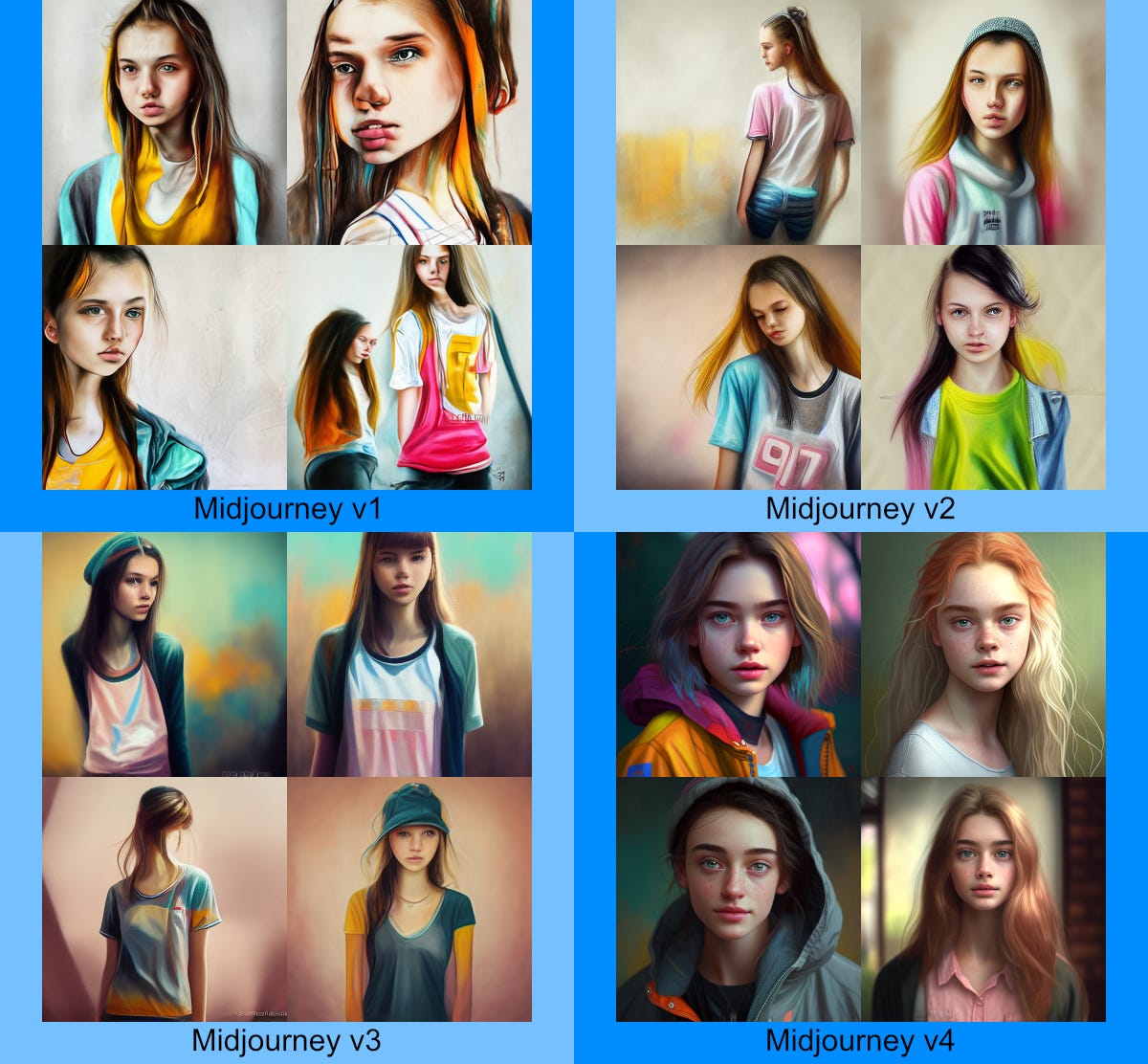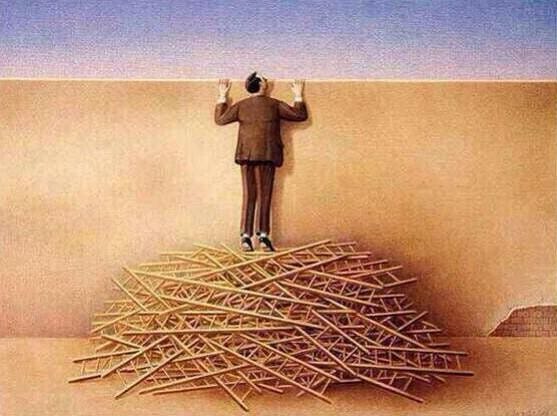Partificial Intelligence
I’ve been waiting over a year to write this post, just holding out for things to calm down.
But there’s a problem, things are not calming down.
Things in the AI world are escalating at such a pace that there’s no opportunity to wait and see.
Everything is getting more chaotic and more unpredictable, and it’s creating a space for some mind-blowing ideas and products.
We’ve never known innovation like it.
The cordless phone was invented in the late 1960s but didn’t make a dent on the market until the early 1980s.
It took 13 years to get from the patent award to market, and a few more years before it got to 1million customers.
Can you imagine anyone giving an idea 15 years to take hold these days?
Facebook took ten months to get to 1million users, ChatGPT took FIVE DAYS. It took the telephone 75 years to get to 50million users, it took ChatGPT two months to get to 100million.
This level of uptake can’t be sustainable, can it?
These days, I’m waking up to threads on the latest thing in AI and grand questions like “how can ChatGPT respond?” like as if every 12 hours a new generation ends.
What Does AI Do To Our Future?
Every founder and leader needs to have this conversation.
What does AI do to your business, your market, your operations, your future?
This isn’t some big scary conversation about the robots taking over and wiping us out, but we will change our patterns of work without even realising.
If you’re under the age of 35 you probably don’t know how big a post or mail room used to be in an office prior to email (unless you are an Always Sunny fan). If you’re under 25 you likely don’t know how big server rooms and PBXs were.
These mainstay business-critical bits of infrastructure have become fully redundant since wifi, VoIP, cloud computing have taken over.
As a geriatric millennial (it’s really a thing), I feel like there’s always been a slight unfair advantage in having an ask Google first mindset. I think HLMGTFY was one of the first lessons I was taught back in my first office job in 2006.
Instead of asking around the office for answers, you can work independently by learning how to ask better questions to get better results on Google. We will come back to this principle later.
That’s where I think the short term opportunity is with AI, using it to enhance our capabilities. Part-ificial Intelligence.
Partificial Intelligence
I know, it’s horrible right.
The advantage right now is to augment what we do with AI tools. Different industries have different use cases, but every industry will be impacted.
When the internet came along there was scepticism that people would really be doing all of their shopping online, and a complete lack of belief that we would have handheld devices like our phones dominating the way we do everything.
The less obvious industries like construction and hairdressing have been more affected by the transfer of information than big ideas like robs-hairdressers.
The other part is to recognise whether AI is going to drastically or only slightly alter your career path.
If you’ve been a graphic designer or illustrator for the last decade or so you’ve probably grown up in a world where every aunt, uncle, and grandparent has told you that you couldn’t make a living doing that, but managed it anyway as digital technologies unlocked so much opportunity.
Now, in 12 months we’ve seen tools like Midjourney make absolutely unbelievable leaps.
Midjourney v1 was only last March, and they were all created with the same prompt: Teenager, female, seventeen years old, pop culture, modern clothing :: Photorealistic, Natural lighting, Pastel.
Where will it be in 12 months?
Right now, we don’t know how likely it is that people will go with an AI tool over using their favourite designers, but we’ve already seen epic productions from companies like Coca Cola which leads to mind-blowing results. This will be delivered by a team augmented with AI tools to achieve things that never could have been done in budget before.
Services like Pexel and Unsplash haven’t led to every photographer going redundant, so there’s hope, but there’s a lot we don’t know.
For the illustrator who has built a reputation, style, and is only now being able to capitalise on decades of work, it can feel pretty disheartening.
Tools like Runway allow you to teach the AI directly in the user interface what kind of style you’d like it to mimic. If you like the style of an illustrator or design you can just train the AI to give you more of the same.
The Drake and Oasis (Aisis) videos are received lightly as there’s a sense that it won’t hurt multimillionaire musicians, but the ease at which someone’s style can be replicated by AI has to be a warning for creators who can’t afford Drake’s lawyers.
For a creative professional who agonises over creating great and respected work to see an AI create something that on the surface looks as good, it’s a gut punch.
Anybody can now create a decent website in 30 seconds, undoing decades of work if your full-time rent payer is making websites for small businesses.
Of course the writing has been on the wall for a while for web developers as platforms like Squarespace and Wix started to eat into that market, but whole professions are being made redundant with no remorse.
The new platforms can do the jobs that web designers always complained about. They can write all of the placeholder text, choose pictures and colour schemes. They can even recommend you a company name, bio, strategy, marketing plan, way more than you’d ever ask a grumpy and impatient mortal.
There are other knock on impacts that aren’t just down to AI but the changing landscape.
Nobody quite knows what all of this means for SEO. Will there be a new niche for chat engine optimisation? How quickly will search traffic be flipped over to AI searches? Where’s the reward if your content is informing the AI but you’re not getting the hits and the revenue?
So many questions.
Prompts
I saw a powerful thread back in March where someone shared their experience in replacing traditional therapy with AI.
I was personally taken back by how quickly the heuristic professions were vulnerable to the powers of AI. There was a sense that it would be algorithmic roles which went first, but the pace is astonishing.
Picking back up on the Google point from earlier, even tools like Google haven’t had fairly distributed rewards.
If you know how to use tools like Google then you are at an advantage.
The same thing applies to AI. The immediate opportunity is trying, learning, and sharing prompts, to create new use cases and examples for how AI can make our lives easier.
There’s a lot in this about using the right tools in the right way. I’m somewhat concerned that the broad lack of curiosity in our culture will prevent people from seeing beyond the headlines when it comes to AI and completely miss out on the potential as a result.
Regulation
Finally, one quick point on regulation. It will never happen quickly enough.
We don’t know how powerful, useful, or dangerous these tools can be, but luckily - or not - we have another emerging industry that we can look to in order to judge whether governments will be able to get a handle on AI quickly enough.
Only it isn’t emerging, we’re two decades into the eras of Facebook and Google and still they’re nothing more than a wild west.
Italy has at least tried something. The Italian government banned ChatGPT on April Fool’s Day, something that made it seem even more unbelievable, but it only lasted four weeks after they made small data privacy improvements.
The social media era has been a story of no scrutiny. There are big problems with online ads, this post from Llio highlights it clearly.
If mainstream news sources feature adverts like this then how can anything that’s posted on there be trusted?
Those same newsrooms have been torn apart as “analytics-driven journalism” determines what content goes online. If your story doesn’t get the clicks that encourage the advertisers then you’re not likely to get the budget needed to investigate further. That’s not good news for democracy.
There’s another industry that has thrived since the early phases of algorithmic models, machine learning and primitive AI.
Bet365 made £2.85bn in 2022, and promotes itself as the “world’s favourite online sports betting company”. In 2020, its Chief Executive received £421m in pay, or £1.5bn since 2016.
These algorithms are already influencing our world, and our worldview, it’s just now that AI is hitting the mainstream that these questions are being asked with more urgency.
In July 2022 the UK government outlined proposals for regulating the use of AI in its Data Protection and Digital Information Bill, only for it to be withdrawn in March 2023 and v2 being introduced in its place. It’s going to take more than a year before that gets close to Royal Assent.
Who knows where AI will be in a year.
Read next…
Frame thinking by asking the right questions…
How do we unlock town centre buildings for amazing ideas that…
What Next For The High Street? Part II
Our high streets have become the victims of many circumstances…
What Makes A Successful Startup Ecosystem?
If it takes a village to raise a child, it takes an ecosystem to raise a founder









